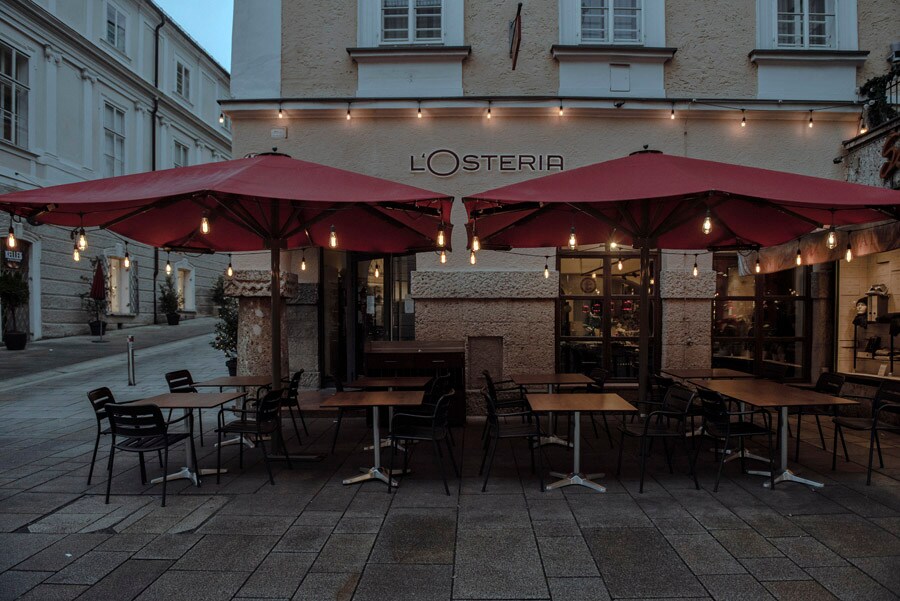
As virus cases rise in Europe, an economic toll returns
Europe's already fragile economic recovery is at risk of being undermined by a fourth wave of coronavirus infections as governments impose increasingly stringent health restrictions that could reduce foot traffic in shopping centres, discourage travel and thin crowds in restaurants, bars and ski resorts
 A restaurant in Salzburg, Austria, on Monday, Nov. 22, 2021. Due to strict health restrictions, restaurants in Austria will allow only carryout service. (Laetitia Vancon/The New York Times)
A restaurant in Salzburg, Austria, on Monday, Nov. 22, 2021. Due to strict health restrictions, restaurants in Austria will allow only carryout service. (Laetitia Vancon/The New York Times)
Europe’s already fragile economic recovery is at risk of being undermined by a fourth wave of coronavirus infections now dousing the continent, as governments impose increasingly stringent health restrictions that could reduce foot traffic in shopping centers, discourage travel and thin crowds in restaurants, bars and ski resorts.
Austria has imposed the strictest measures, mandating vaccinations and imposing a nationwide lockdown that began on Monday. But economic activity will also be dampened by other safety measures — from vaccine passports in France and Switzerland to a requirement to work from home four days a week in Belgium.
“We are expecting a bumpy winter season,” said Stefan Kooths, a research director of the Kiel Institute for the World Economy in Germany. “The pandemic now seems to be affecting the economy more negatively than we originally thought.”
The tough lockdowns that swept Europe during the early months of the pandemic last year ended up shrinking economic output by nearly 15%. Buoyed by a raft of government support to businesses and the unemployed, most of those countries managed to scramble back and recoup their losses after vaccines were introduced, infection rates tumbled and restrictions eased.
In September, economists optimistically declared that Europe had reached a turning point. In recent weeks, the main threats to the economy seemed to stem from a post-lockdown exuberance that was causing supply-chain bottlenecks, energy-price increases and inflation worries. And widespread vaccinations were expected to defang the pandemic’s bite so that people could continue to freely gather to shop, dine out and travel.
©2019 New York Times News Service







